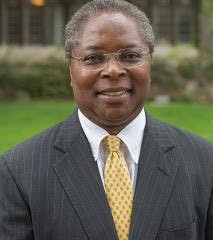
February is Black History Month, and to celebrate, Whitworth University is bringing internationally-known speaker Dwight Hopkins to campus for a lecture titled “What is a Christian Black Theology of Liberation” on Feb. 8.
Hopkins is a professor of theology at the University of Chicago’s Divinity School, a Baptist minister, and founded a 14-country student exchange network to facilitate global conversations about culture, race and diversity. He’s written several books and is currently working on a new one tentatively titled “Building Global Cross Cultural Leadership.” He still found time to chat with us about his upcoming talk, his thoughts on social justice and how students can take on divisive political and social issues on their campuses.
Spokane FAVS: First off, what is black liberation theology?
Hopkins: It looks at Christianity as it’s reflected in African American culture. Black liberation theology began in 1966; a group of religious and community leaders wanted to ask the question ‘How does the church, particularly the African American church, deal with contemporary issues?’ It asks, ‘how do the church and religious people respond to that today?’
Contemporary issues include things like race relations, education and social justice. In Hopkins’ view, they mostly center around institutions of power and society.
Hopkins: An example is the Black Lives Matter movement. Christianity is concerned about fairness for people and building a just society.
Spokane FAVS: What led you to become interested in black liberation theology?
Hopkins: I went to Harvard University, I double majored in African American studies and economics. I wanted to link global and local issues, particularly from a perspective of a person of color. I did what you’d call community organizing right after college for a few years in Harlem. I decided religion, culture and spirituality was something common to all of us.
Spokane FAVS: You founded a 14-country network that’s all about building bridges across global cultures. What does this look like from a day-to-day perspective in your program?
Hopkins: We have the youth and students travel to countries within the network. For example, two students from Zimbabwe recently came to Chicago for an exchange program. It’s really about moving young people from their space to a new space. Secondly, we began to network between the nations; building long-term relationships between students in other countries. That’s really where the magic begins.
Spokane FAVS: How can students address the current divisive social and political culture on their campuses?
Hopkins: They can use existing organizations and also create new ones; commit themselves to building institutions. Become more active in the actual administration in schools. Students can have an impact on power, policy and decision making where they are. They might be there for only four years, but they are citizens of that school.
Hopkins is also a big advocate of studying diverse types of history; instead of just European history, he believes we should study all types, including African American history.
Hopkins: It’s part of one American narrative. We get educated very well in terms of one European tradition and we leave out the others. We sort of add them on.
This interview has been edited and condensed for space.
[box type=”info” align=”” class=”” width=””]If you go: What: ‘What is a Christian Black Theology of Liberation?’ Speaker: Dwight Hopkins, Ph.D. Where: Whitworth University, Weyerhaeuser Hall’s Robison Teaching Theatre Cost: Free Time: 7 p.m., Feb. 8[/box]







Κατεβάστε την εικόνα προφίλ του υπολογιστή στο instagram
instagram downloader video